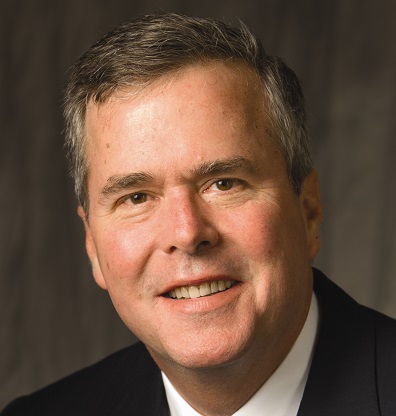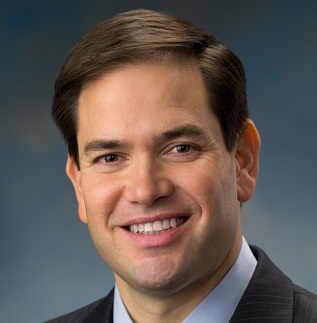By Bob Allen
At least two GOP presidential hopefuls will vie for evangelical support at an upcoming conference on missions sponsored by the Southern Baptist Convention.
Russell Moore, president of the SBC Ethics & Religious Liberty Commission, announced plans to interview former Florida Gov. Jeb Bush and Sen. Marco Rubio (R-Fla.) during the Send North America Conference Aug. 3-4 in Nashville, Tenn., in a press release July 23.
In its third year, the annual conference sponsored by the SBC North American Mission Board is for the first time co-sponsored by Southern Baptists’ other mission-sending agency, the International Mission Board. The sold-out event at downtown Nashville’s Bridgestone Arena immediately precedes an Aug. 5 ERLC national conference on The Gospel & Politics at the nearby Music City Center.
 Moore plans to interview Bush, who announced his candidacy June 15, live and Rubio, who threw his hat into the ring in April, on video during a “civil forum discussion” in front of 13,000 evangelical pastors and leaders on Aug. 4. That’s two days before the first of nine televised debates sanctioned by the Republican National Committee on Fox News Aug. 6.
Moore plans to interview Bush, who announced his candidacy June 15, live and Rubio, who threw his hat into the ring in April, on video during a “civil forum discussion” in front of 13,000 evangelical pastors and leaders on Aug. 4. That’s two days before the first of nine televised debates sanctioned by the Republican National Committee on Fox News Aug. 6.
“What has become clear in the past several years is that evangelicals are tired of sloganeering and are looking for concrete strategy,” Moore said in the press release. “Evangelicals realize they can no longer consider themselves part of some silent majority, where our First Amendment freedoms are assumed and guaranteed.”
Moore said evangelical voters want to know which candidates “offer a clear, coherent vision of religious liberty and have a plan to defend it when the very idea is contested in American politics.”
“Evangelicals are looking for leaders who not only understand their convictions about human dignity and family stability but have plans to address them,” Moore said. “This event will provide the opportunity for precisely this kind of discussion with some of the leading presidential candidates, and I am greatly looking forward to it.”
 Moore said leading candidates from both parties were invited to participate. Moore met privately with Bush in May in Miami, a visit prompting widespread media attention. Moore later told Baptist Press he was surprised by the interest, because he had met with other potential presidential candidates with virtually no publicity.
Moore said leading candidates from both parties were invited to participate. Moore met privately with Bush in May in Miami, a visit prompting widespread media attention. Moore later told Baptist Press he was surprised by the interest, because he had met with other potential presidential candidates with virtually no publicity.
“I don’t endorse candidates. I’m not going to endorse a candidate. I’ll never endorse a candidate for president,” Moore, said in an interview reported May 15. “I don’t think that’s my job. But I’m willing to meet with anyone who wants to talk about what Southern Baptists are about and what sorts of things are of concern to us.”
Moore, a former seminary professor who took the post as Southern Baptists’ top policy expert in 2013, is often contrasted as more irenic and less partisan than his predecessor Richard Land. Land, who performed the job 25 years, famously summed up the Religious Right’s expectation from the GOP in a 1998 New York Times interview by saying: ”The go-along, get-along strategy is dead. No more engagement. We want a wedding ring. We want a ceremony. We want a consummation of the marriage.”
 In a 2013 interview with the Wall Street Journal, Moore called on Christian leaders to tone down their rhetoric and pull back from partisanship, because younger evangelicals feel “visceral recoil” against the culture wars.
In a 2013 interview with the Wall Street Journal, Moore called on Christian leaders to tone down their rhetoric and pull back from partisanship, because younger evangelicals feel “visceral recoil” against the culture wars.
“We are involved in the political process, but we must always be wary of being co-opted by it,” Moore said. “Christianity thrives when it is clearest about what distinguishes it from the outside culture.”
Some conservative leaders accused Moore of surrendering the social sphere. Moore later clarified what he viewed as a misleading headline describing his message as a “pullback” from politics.
“I am not calling, at all, for a ‘pullback’ from politics or engagement,” Moore said in a blog posting Oct. 23, 2013. “If anything, I’m calling for more engagement in the worlds of politics, culture, art, labor and so on. It’s just that this is a different sort of engagement. It’s not a matter of pullback, but of priority.”
“I don’t think we need a pullback from politics,” Moore said. “I think we need a reenergizing of politics. This means we must do more than simply live off the fumes of the last generation’s activism. Millennial and post-Millennial Christians are walking away from the political process, and this is what alarms and motivates me. They’ve grown cynical at movements that are willing to adopt allies that are gospel heretics as long as they are politically correct (see ‘Beck, Glenn’ or ‘Trump, Donald’). They are disenchanted with movements that seem more content to vaporize opponents with talk-radio sound bites rather than to engage in a long-term strategy of providing a theology of gospel-focused action in the public square.”
Moore’s Aug. 5 conference on faith and politics features speakers including Focus on the Family President Jim Daly, New York Times op-ed columnist Ross Douthat, Erick Erickson of RedState.com, and Washington Post columnist Michael Gerson.
“Are you tired of the shouting match between Republicans and Democrats, blue states and red states?” Moore asks in a promotional video. “What should our political engagement look like as the followers of Jesus Christ?”
Other speakers include Moore; Samuel Rodriguez, president of the National Hispanic Christian Leadership Conference; and David Platt, president of the SBC International Mission Board.
